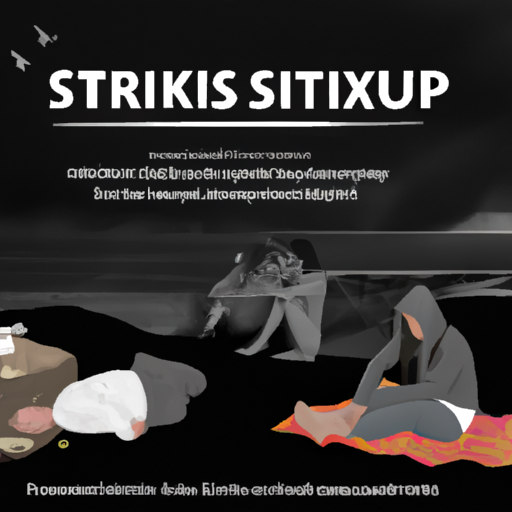The Opioid Crisis in Nova Scotia: A Multifaceted Challenge
In a compelling piece by The Times Colonist, an intimidating situation in Nova Scotia is examined: the province’s burgeoning opioid crisis. You can read the complete article here. The opioid crisis, once primarily a concern for the western provinces, has seeped into the Maritimes – begging proactive and reactive measures from communities and the provincial government alike.
The Impact of the Opioid Crisis
The opioid crisis in Nova Scotia is indiscriminate, significantly affecting both the indigenous and non-indigenous communities. The aftermath has become quite visible with rising homeless populations and escalating crime rates. There exists a direct correlation between the opioid crisis and these negative socio-economic impacts. These opioids, highly potent and easily addictive substances such as heroin, fentanyl and prescription pain killers, have their grip on the province’s most vulnerable communities. It is a public health crisis with a shadow that reaches beyond the affected individuals to the broader community.
Combatting the Opioid Crisis
The Nova Scotia government has been putting mitigation measures into place. Nova Scotia’s Department of Health and Wellness, along with various partner organizations, has been rolling out ‘Take Home Naloxone Program.’ Naloxone, an opioid antagonist, can temporarily reverse the effects of an opioid overdose. The take-home kits are an effort to reduce the number of fatalities resulting from overdoses.
Additionally, the government announced it would create a new Volunteer Guard Corps for emergencies. This initiative would be instrumental in providing immediate help and facilitating the efficient allocation of resources in crisis situations.
Key Points:
- Indiscriminate Impact: The opioid crisis is affecting both indigenous and non-indigenous communities in Nova Scotia, contributing to escalating homeless populations and crime rates.
- Emergency Response: Nova Scotia is creating a new Volunteer Guard Corps to provide immediate help and facilitate efficient resource allocation in emergencies.
- Naloxone Program: The Nova Scotia Department of Health and Wellness collaborates with partner organizations to distribute take-home naloxone kits, aiming to reduce fatalities from opioid overdoses.
- Public Health Concern: The opioid crisis is a significant public health concern, with the effects cascading beyond those directly affected to the broader community.
Addressing the Class-Action Lawsuit
On the legal frontier, the province of Nova Scotia has been named in a significant opioid class action. This lawsuit alleges that the province is complicit by failing to act or respond forthrightly to the opioid crisis. It is a claim that brings our collective attention to the crucial role of government intervention and appropriate governance in addressing public health crises such as the opioid crisis.
Closing Thoughts
Nova Scotia’s opioid crisis presents a profound challenge. The crisis has social, health, and economic implications that ripple across the communities. As community leaders, it is integral to consider comprehensive, cross-sectoral, and partnership-based strategies in a collective push towards addressing this pressing concern. This challenge underscores the importance of timely public health interventions, socio-economic support measures, and a robust legal framework responsive to the evolving dynamics of the crisis.
Nova Scotia, like many other provinces facing similar challenges, provides us with a stark reminder of the urgency in responding to the opioid crisis – a crisis that calls for compassion, concerted action, and the collective will of a society committed to ensuring the well-being of all its constituents.
